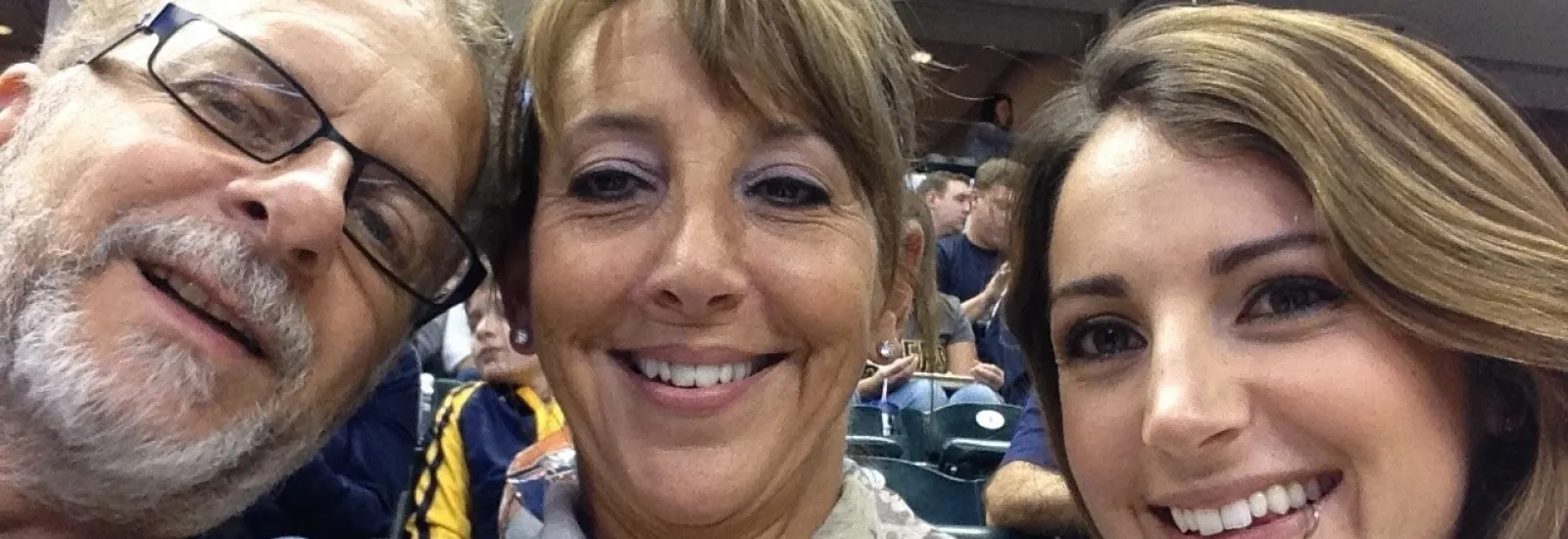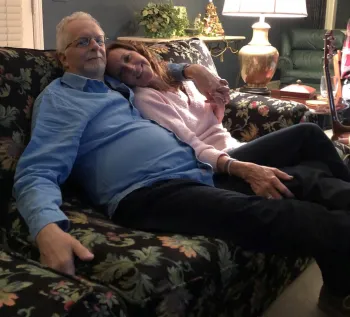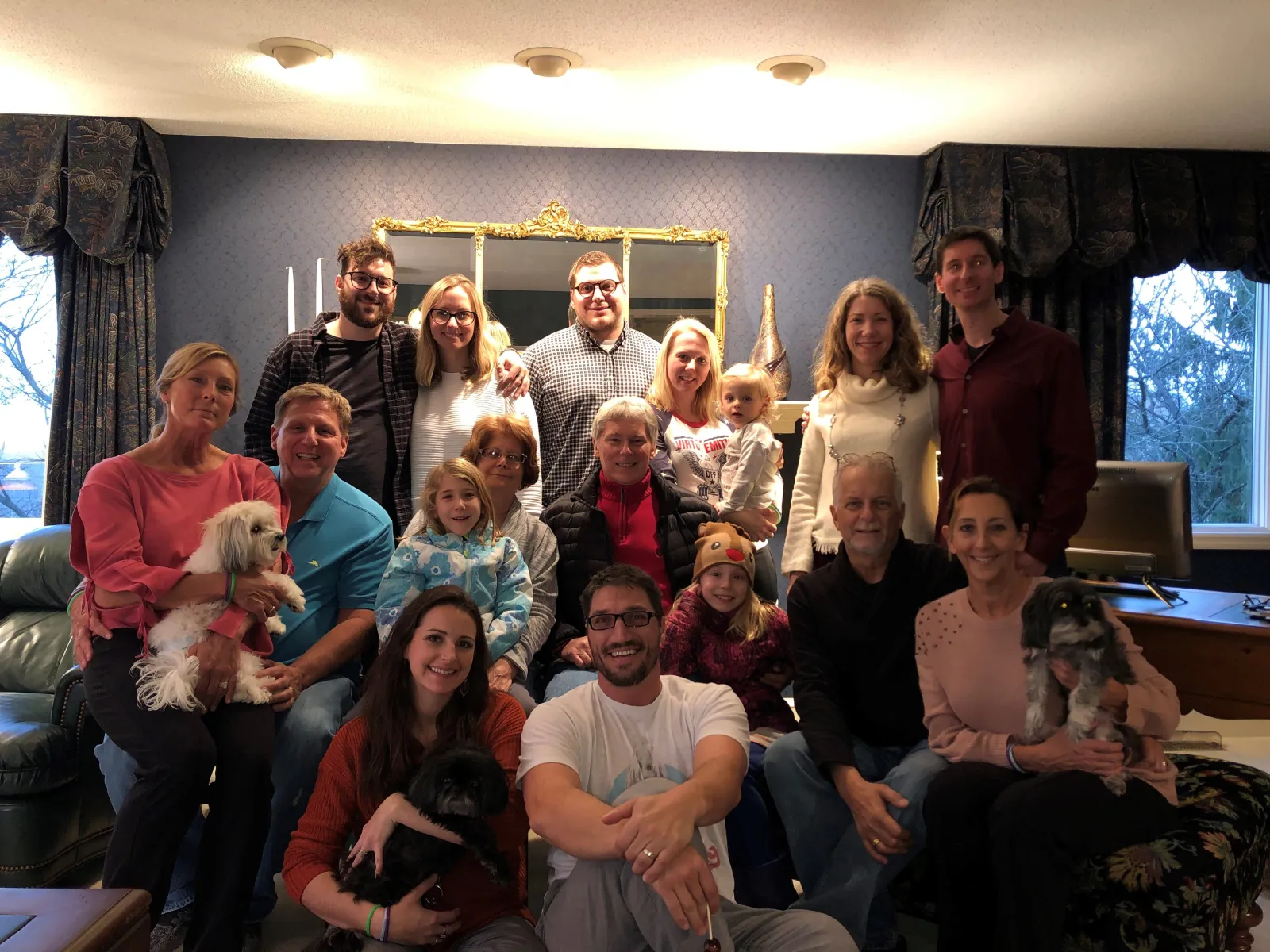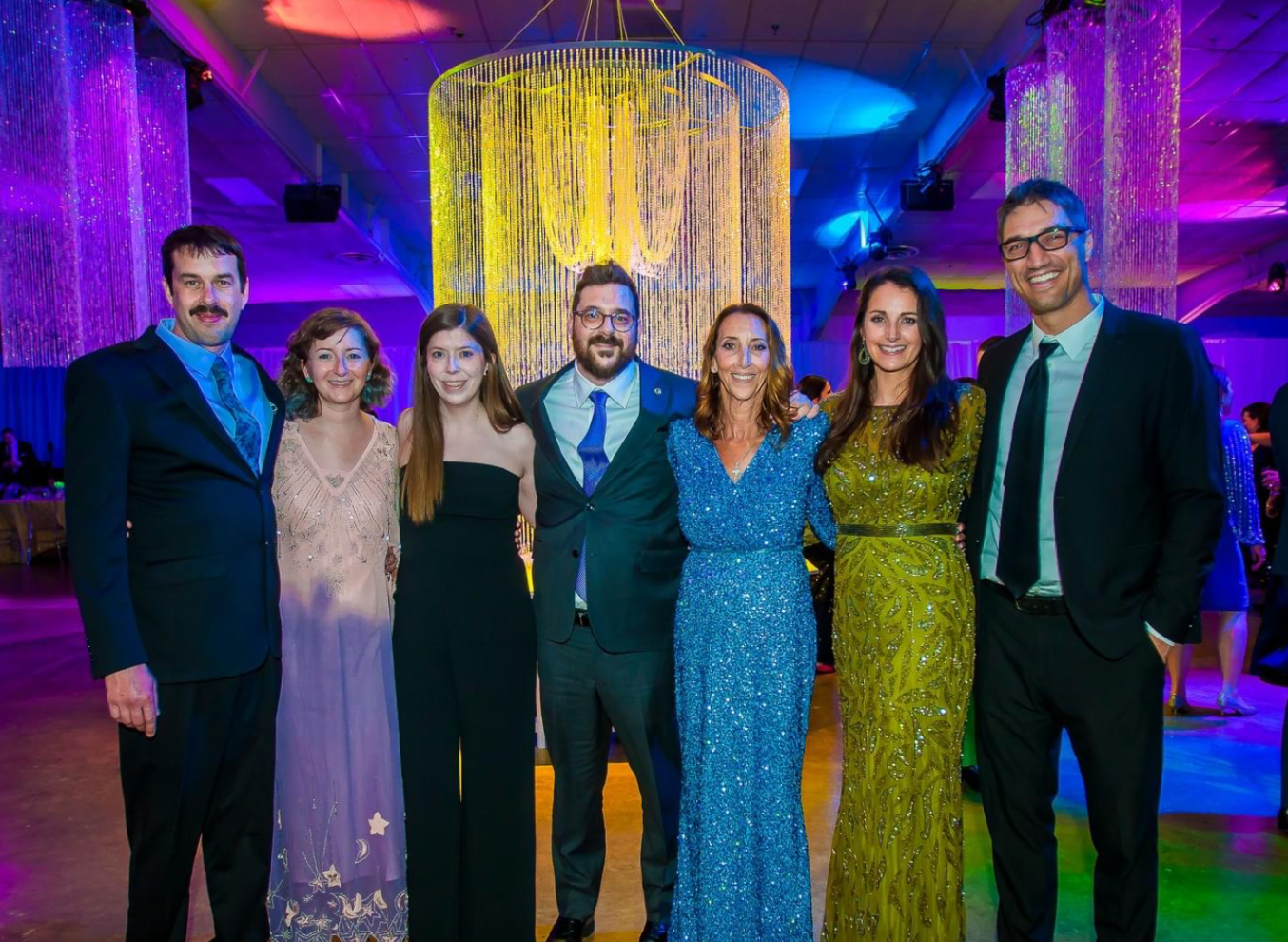
‘Go out and do good’: One family's story about cancer and the importance of preventive screenings

Andrea Mosey and her husband, Steve
In a darkened
auditorium, the only source of light is focused directly on Andrea Mosey. She's
there to share a story and a message.
The story is
her own. It's about dealing with the loss of loved ones, lessons hard taught by
grief. She's willing to tell it, but there are still nerves. There's nothing
easy about opening yourself so fully and reliving some of the worst days of
your life.
The story is
also Steve's, her husband. It was his final charge, a sense of purpose he wanted
to instill in her, that led to Andrea sitting in that light.
"Go out and do
good," he told her.
And so she
does. She talks about what it was like to lose him and others in her family.
How in the days following his death, well-meaning people would offer comfort
only to unknowingly cause more pain. How friends and family provided the
support she and her children needed to be able to mourn.
All of it in
service of her message.
"Cancer doesn't
care who you are. It doesn't care if you're rich or poor, young or old. It
doesn't matter," Andrea said. "Unfortunately, there is no screening
for pancreatic cancer, but there are many out there for breast cancer, prostate
cancer, and more.
"If you can do one little test that could save your life,
don't think just about yourself. Think about your family. They need you. They
love you.
"Don't be afraid. You might save your family a lot of
sadness and heartache."
*****
It was a snowy
Friday in January when Andrea got a call saying it was time to come to the
hospital. Her mother, Margaret Svarczkopf, needed to see her.
Three years
prior, Andrea's oldest brother, Kevin Svarczkopf, had died from colon cancer.
The loss dulled the light in her 80-something mother's eyes.
"I think it was
just more than she could handle," Andrea said. "She gave up basically."
The same week
Margaret was admitted to Reid Health Hospital for hospice care, Steve began
having back pain. A visit to a chiropractor suggested the problem wasn't
anything skeletal related. More testing was needed.
"Cancer doesn't care who you are. It doesn't care if you're rich or poor, young or old. It doesn't matter. ... If you can do one little test that could save your life, don't think just about yourself. Think about your family. They need you. They love you. Don't be afraid. You might save your family a lot of sadness and heartache." -- Andrea Mosey
A later scan
showed suspicious spots on Steve's liver and pancreas. The couple was about to
head out for a biopsy appointment when Andrea received the call about her
mother. Margaret wanted to say goodbye.
"She just said she was really tired and she was really sorry,
but it was time to go," Andrea said. "She asked me to brush her hair, wash her
face, and brush her teeth. And I said goodbye. I asked her to please wait until
we got home.
"We were getting ready to go get terrible news. I knew
already. Steve and I made it to Indianapolis -- in a snowstorm, of course -- and
got his diagnosis and then had to jump back in the car and come back to Richmond.
She waited on us to get home."
Margaret hadn't been told about Steve's health. When the
couple arrived back at Reid, she wasn't lucid.
"But as we entered the room, she started crying so I know she
knew," Andrea said.
Steve had Stage 4 pancreatic cancer.
*****
Six months
later, Andrea's father, Ambrose "Beanie" Svarczkopf, died from prostate cancer.
And in the middle of it all, another of Andrea's brothers, Kyle, was diagnosed
with B-cell lymphoma.
Three members
of her family with cancer at the same time. Only Kyle would win his battle.
"I mean, it was a perfect storm," Andrea said. "I don't know
how we survived actually, but I think God had to have helped us and our family
and our friends because it was awful. I wouldn't wish that on my worst enemy."
Steve died almost a year to the day after Andrea's father.
"I had a whole year with him that I wasn't worried about my
mom and dad, which was kind of a blessing in a way because I loved my parents
and I was trying to do everything to help them as well," Andrea said.

Steve lived 18
months after his diagnosis. In his final days, he had a directive for Andrea.
"He took my hand, and he made me promise to do good. I just
looked at him and I said, 'What do you mean?' And he said, 'You know what I
mean. Go out and do good. You can and you should,'" Andrea said. "He was always
the one at the forefront of our family going out and doing good, and he kind of
passed that off to me.
"I was afraid Steve would be defined by cancer because at
the time that's all everybody was focused on. But through the four years he's
been gone, the stories I get told and the memories, I don't know if people
realize how important that is. You need to keep talking about them because we
need to hear their name and we need to know you haven't forgotten them. They're
still very much a part of our daily life, even though they're not physically
present."
Grieving Steve
was incredibly painful. Family and friends were there to help, both before and
after his death.
"I think we found we had many more friends than we knew. I
mean really true friends," Andrea said. "Our family and our friends held us up.
Anything we needed, they were there -- trips to Indianapolis for treatment,
emergency calls in the middle of the night. Someone was always available to be
with me so I wasn't alone. My kids, I think they really found out who their
family and friends are."
Dealing with loss taught Andrea and her children to be more
mindful of what others might be going through in their personal lives, to be
more forgiving of the day-to-day transgressions that can cause tiffs between
parents and their children, couples, and friends.
"You may see someone having a really bad day. They're mad. They're
sad. You don't know what they're going through. You haven't walked in their
shoes," Andrea said. "I learned a hard lesson. Just going to the grocery.
You're broken and you're in there trying to buy groceries to feed someone you
love who's dying in front of you.
"Don't sweat the small stuff. Love your neighbors. Love your
family. It's not always easy to do. We all know that. But at the end of the
day, help each other be healthy. It's really not that hard."
*****
Less than a year after Steve's death, the COVID-19 pandemic
arrived. Those early days of isolation were hard but not without a certain
benefit.
"I was kind of in a bubble for a while. I know it wasn't
healthy for many, many people, but I think it gave me a chance to try to process
everybody I'd just lost. How am I going to go forward? I've just lost all my
people except my kids, and they're not supposed to be my people. They're
supposed to be my kids. But now they're my people," Andrea said.
Eventually, she found she could pay forward the kindness
showed to her during and after Steve's illness. Family and friends who
themselves had lost their spouses needed guidance through their own journeys in
mourning, answers for how to live a life that suddenly felt completely alien to
them.
"I didn't think I would ever be able to go there, but I can,"
Andrea said. "People need you. One cousin lost her husband in the summer, and I
remember where she is mentally, physically, emotionally. I remember. I'll never
forget it. But at the end of the day, I tell her, you can survive this because
you don't have a choice. You will keep going, and we will hold you up. Those
who love you will get you through this. And that's true."
"If you have friends, ask them, 'Have you had your colonoscopy? Have you had your mammogram?' Ask, and you'll be surprised how many will say, 'No, I haven't done that.' And then you push. You say, 'I love you. Please will you do it for me? I'll take you.'" -- Andrea Mosey
Recently, Andrea has begun to feel Steve's presence in her
life again, a guiding force nudging her to live out the mission bestowed upon
her from his deathbed.
"I know he's there. He's helping me. He's helping my
children," she said. "Becoming part of the Foundation board has helped me. I've
not been a part of anything before. And I don't know, I feel like maybe it's
Steve's way of helping me help the community.
"I think we all kind of feel that drive to carry on Steve's
legacy. We don't want him to be forgotten."
*****
And so we
return to that darkened auditorium and the message Andrea wanted to deliver, a
plea to anyone who will listen about cancer screenings.
"I think if someone has the opportunity to be screened and
they don't do it, it's really not fair to your family," she said. "Once you get
a Stage 4 diagnosis, your chances of living are very, very slim.
"You don't know how much you are involved in that nucleus of
your family until it's broken. It takes a long time to bring that back."
Andrea has a
charge of her own, one meant to give new purpose to those who already routinely
get their screenings.
"If you have friends, ask them, 'Have you had your
colonoscopy? Have you had your mammogram?' Ask, and you'll be surprised how
many will say, 'No, I haven't done that.' And then you push. You say, 'I love
you. Please will you do it for me? I'll take you.'"

Her counsel was delivered through a video message and in
person at the Reid Health Foundation's inaugural "Kaleidoscope -- Let's Have a
Ball" event in March. The
evening took inspiration from the collection of colors that represent various
kinds of cancer, bringing awareness to and raising funds for the prevention and
treatment of the disease.
"My family has been ravaged by cancer. And Kaleidoscope is
all about trying to find the scan you can do to prevent the cancer or cure it,
and who wouldn't want that?"
"I hope everyone walked away from Kaleidoscope with hope and
peace that people are trying to help find ways to stop this. We're all reaching
for the same goal. Think how many people we could save."
To schedule
your preventive screening, visit reidhealth.org/screenings.

